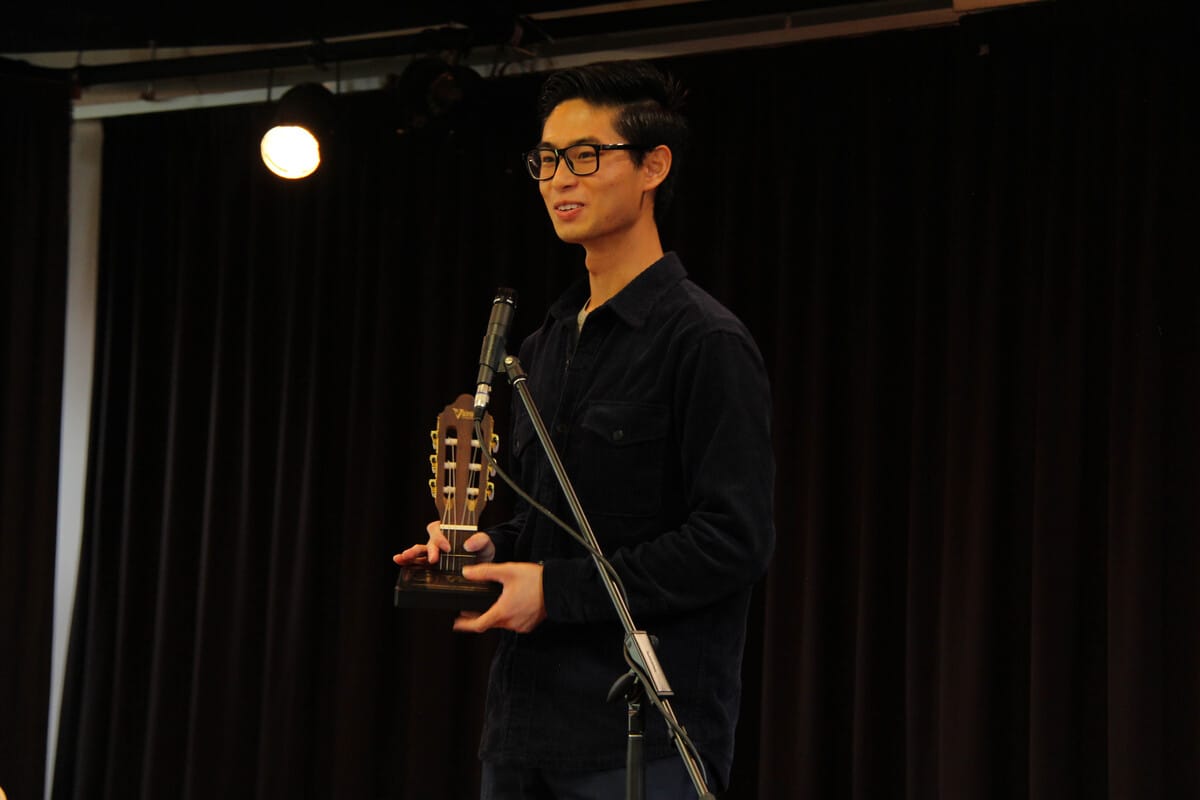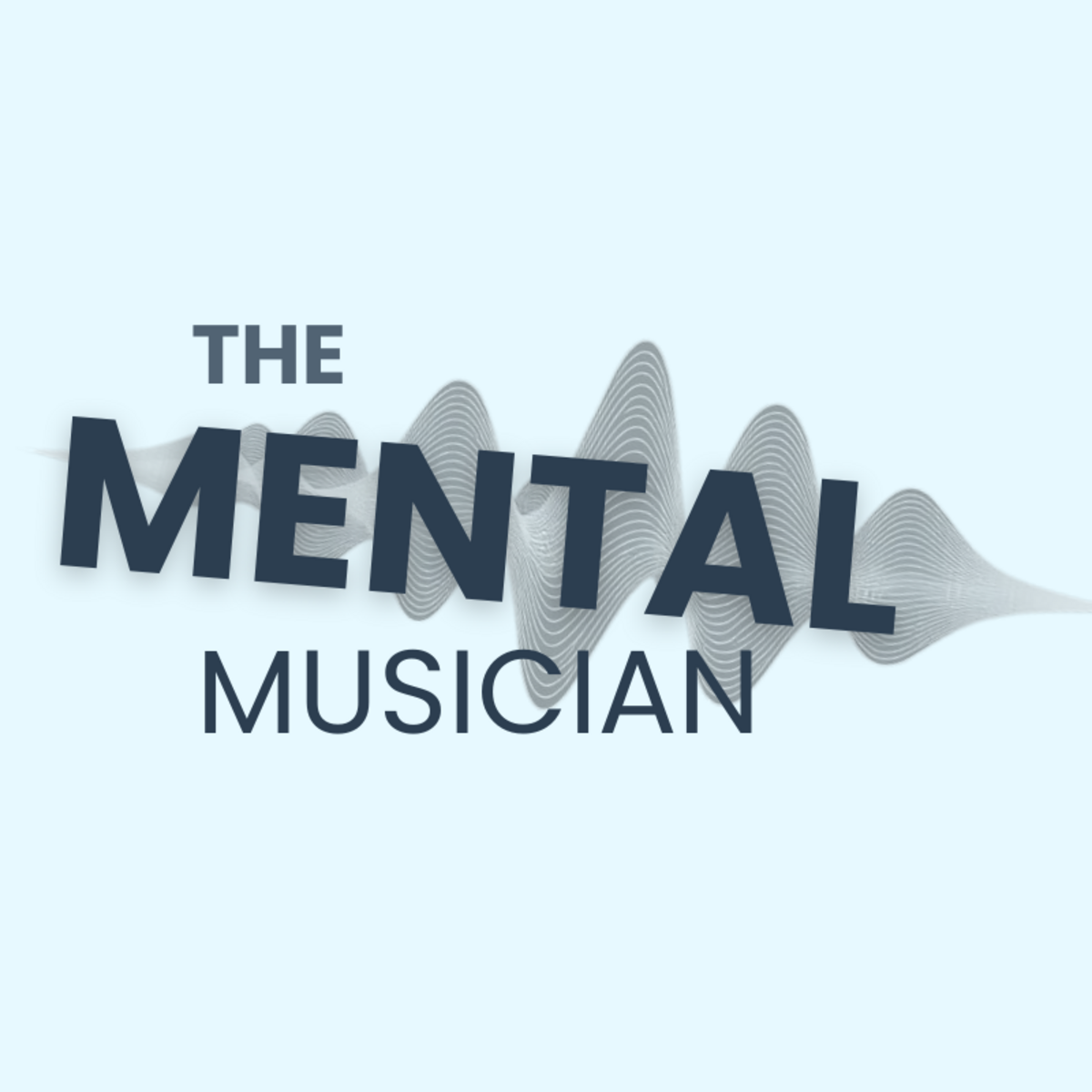It took me eight years to finally open up about my mental health struggles as a musician.
That’s actually quick. Most artists spend decades hiding their pain.
And that’s the irony, isn’t it?
We give joy to the world through our music, but we often do it by channeling our pain, loneliness, and darkness.
And no one sees the cost.
Over 70% of musicians worldwide report symptoms of depression.
It’s an invisible crisis. And it’s one the music industry still isn’t talking about enough.
I’ve talked about this for a long time this newsletter.
So you all know that being a musician means living with a constant sense of performance — not just on stage, but in life.
If people don’t listen to your music, you don’t get a following.
If a promoter ignores your tracks, you don’t get gigs.
If Spotify’s algorithm doesn’t like your sound, you’re invisible.
Add to that the financial pressure of surviving, and it’s no wonder so many of us break down.
Yes, there are support networks now.
Yes, more artists are speaking up.
But is it enough?
I’ll let you answer that.
Now there was a reason it took me so long to start opening up, not just publicly, but to my friends and family.
For the longest time, I didn’t think I was allowed to ask for help.
At 17, I started my professional music journey. I poured everything into it.
Every conversation, every friendship, every lesson — all about music.
Gear. Technique. Touring. Heroes.
I thought that’s what being a “real musician” meant.
But by 26, I was falling apart:
Averaging 3 hours of sleep per night
Diagnosed with a heart condition
Suffering panic attacks
Experiencing seizures due to stress
Dropped under 70kg
Suicidal thoughts
All while pretending I had it together.

This excerpt from Matt Haigh’s “Reasons to Stay Alive” sums up what depression is for me
The first time I tried to speak up was to a jazz guitar teacher during my uni exams.
I had been running on 20 hours of sleep... for the entire week.
I told him I was depressed. That I was drowning. That I’d had two panic attacks.
He looked at me and said,
“You need to find a way to get back on track with your practice, or you’ll fail the course.”
It shattered me.
It broke my heart, because this was the first time I had told someone I felt exhausted.
My jazz teacher was someone I respected and for him to brush aside my issues made me feel like I didn’t matter.
It wasn’t the first time I’d been dismissed.
When I told my mother I went to therapy, she laughed:
“Therapy? You’re lucky. You should be grateful.”
But hindsight is a beautiful thing, because at the time I was furious at my teacher and my mother.
Now, I understand them.
Their generation didn’t grow up with mental health education.
To them, depression just meant “being sad.”
And the answer was always “work harder.”
So I realised something important:
If I wanted people to understand, I needed to learn how to speak to them in a way they could hear me.
So in 2023, I made a choice:
Keep living in silence and slowly destroy myself
Or make a massive change — and still chase my music, but take care of my health first
I chose change.
Since then, I’ve been:
Sharing stories of depression and recovery on Instagram and YouTube
Writing these newsletters to go deeper into the hardest parts of my life
Talking about panic attacks on stage and how close I came to suicide
Opening up about therapy, medication, insomnia, and rebuilding
And something amazing happened:
People started reaching out.
To say thank you.
To say “me too.”
To say “I didn’t know I was allowed to talk about it either.”
I’ll show you an email I sent out opening up about my depression:

The replies that landed in my inbox floored me.
One parent shared their own story:
“We hide behind a facade & put on a brave face so the world won’t know we are drowning inside… no medication, family, or friends can get you through but yourself. U can overcome this, every day is a new day. We are here nevertheless for u 💪.”
Another wrote with quiet empathy:
“I can relate to your situation… we feel our inside crumbling and spiral down with no end.”
I had to stop mid-email several times just to collect myself.
For the first time in my life, I realised I wasn’t as alone as I thought.
There were people who would listen.
People in my life that do care.
And that’s where things started to change for the better.
Look, you probably do what I did.
When you’re in pain, you pick up your guitar.
You write a song.
You put your feelings into a melody.
And for a while, it helps.
But when the song ends, you’re still alone.
So today, I want to give you something different.
I want to give you nine conversation prompts to help you slowly open up to a friend, a family member, or even a fellow musician about your struggles.
These are prompts I came with and they were monumental in taking the pressure off when I first started talking about my mental health struggles.
✏ 1. “Hey, do you have 10 minutes? I want to tell you something important to me. If you don’t mind listening.”
→ A gentle, non-intrusive way to ask for space and time.
✏ 2. “Even if you’re not sure what to say, just listening to me would mean a lot. That’s how you can help.”
→ Reassures the other person they don’t need to “fix” you — just be there.
✏ 3. “I trust you enough to tell you this, because I know you care about me.”
→ A powerful way to open vulnerability and remind them they matter to you.
✏ 4. “I want to tell you I’m having a hard time. Being a musician isn’t easy, and I’m stressed about finding work. I know you might tell me to consider another career, but I’d really appreciate your support right now.”
→ Honest, clear, and sets the tone for what you need (support, not career advice).
✏ 5. “I’ve noticed you’ve been worrying about me lately. I want to tell you what I’m going through so you can understand a little better.”
→ Acknowledge their concern and invite them into your world.
✏ 6. “I’m not sure how to move forward. I just want to talk about what I’ve tried and where I’m stuck.”
→ A simple way to open the door when you feel lost.
✏ 7. “I feel like I’m not good enough. I don’t necessarily want you to tell me I am good enough — I just want to know if you believe in me.”
→ Deep, raw, and gives the other person clarity on how to show up.
✏ 8. “Being a musician is something I love, and it allows me to be the best version of myself. I wish I could share that with you, and not have to hide it anymore.”
→ Let them into the joy of your passion, not just the struggle.
✏ 9. “I may need a little help — not too much. Maybe just with something small like grabbing lunch, doing laundry once, or giving me a ride. Would that be okay?”
→ Asking for specific, small help makes it easier for people to say yes.
One thing to remember is that I can’t tell you exactly what will work for you.
But what I can tell you is how to go into the right direction, and when you do find the courage to ask for help the first time, it will lift a massive weight off your chest. The second time will be a little bit easier.
And most importantly opening up doesn’t mean giving people your entire life story.
You can share one feeling,
one worry,
or one small piece.
Start where you are.
Go at your pace.
You are allowed to do this imperfectly.
You may not be able to control what comes after, but what you are doing is giving others close to you a chance to help you, to understand you better, and most importantly, a chance for you to lift all the pain, suffering and anguish you’ve kept to yourself, so that you have a chance to be happy and healthy again.
You deserve support, care, and connection.
Take one small step today.
Use one prompt.
Reach out to one person.

Ed is right here. Don’t lock it away. Open it up and talk to someone. One word at a time.
I hope today’s newsletter helps you find a way to start talking to someone about your mental health.
Forward this to one to a fellow musician or friend you care about.
Let them know it’s okay not to be okay.
If you want extra support, here’s how you can reach me:
📱 Follow me on social media
Subscribe to my Youtube Channel
🎙️ And if you want to go deeper.
On my Patreon, I offer:
✅ exclusive podcast episodes
✅ monthly open calendar sessions just for Patrons — where we can talk through how you’re doing, how the prompts are going, and what you need next.
If you want a space where your voice matters,
and where you can get personal support —
I’d love to welcome you there.
What are other paths musicians can take that aren’t the “usual recipes”, but are just as fulfilling?
Join over 4 million Americans who start their day with 1440 – your daily digest for unbiased, fact-centric news. From politics to sports, we cover it all by analyzing over 100 sources. Our concise, 5-minute read lands in your inbox each morning at no cost. Experience news without the noise; let 1440 help you make up your own mind. Sign up now and invite your friends and family to be part of the informed.




